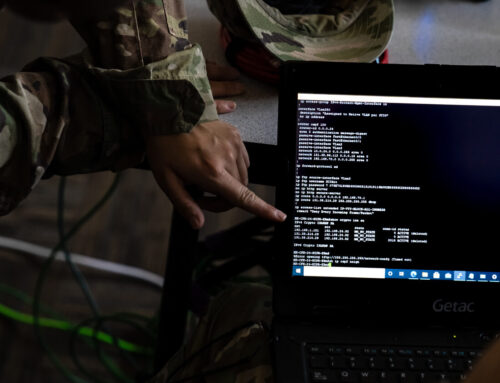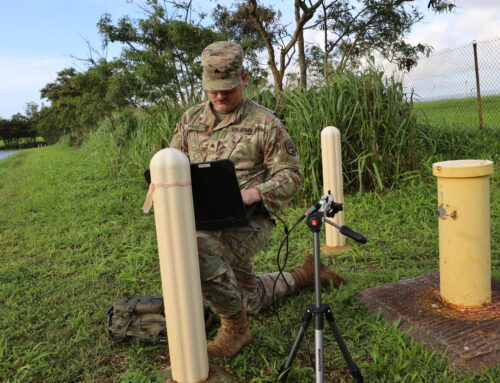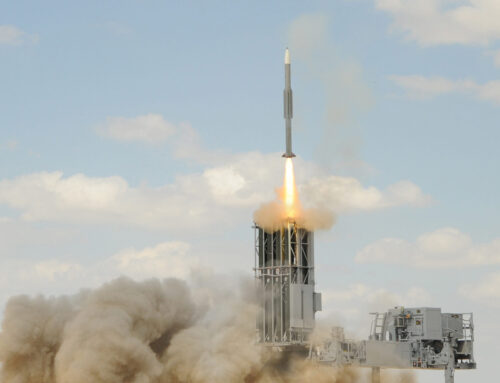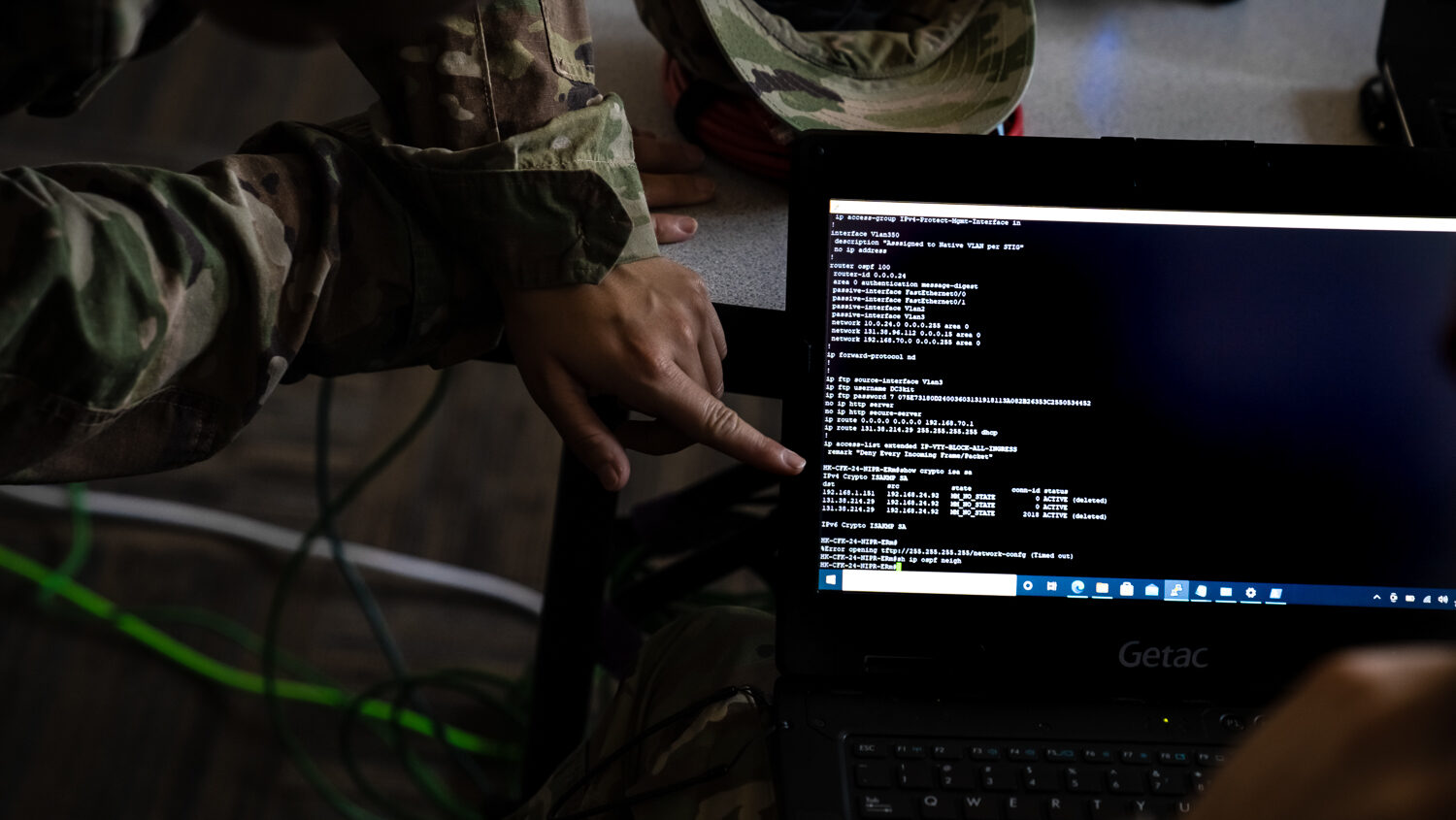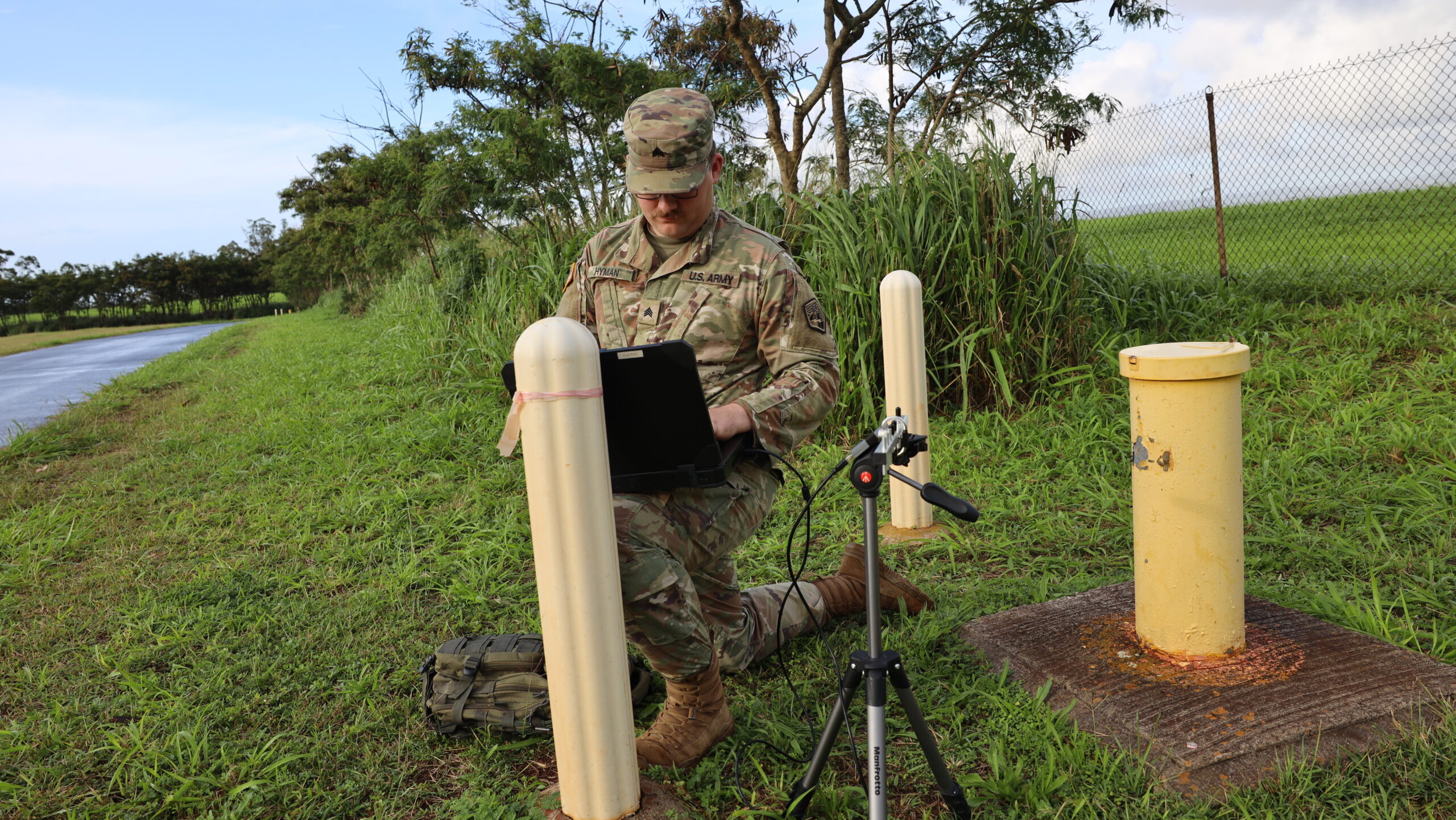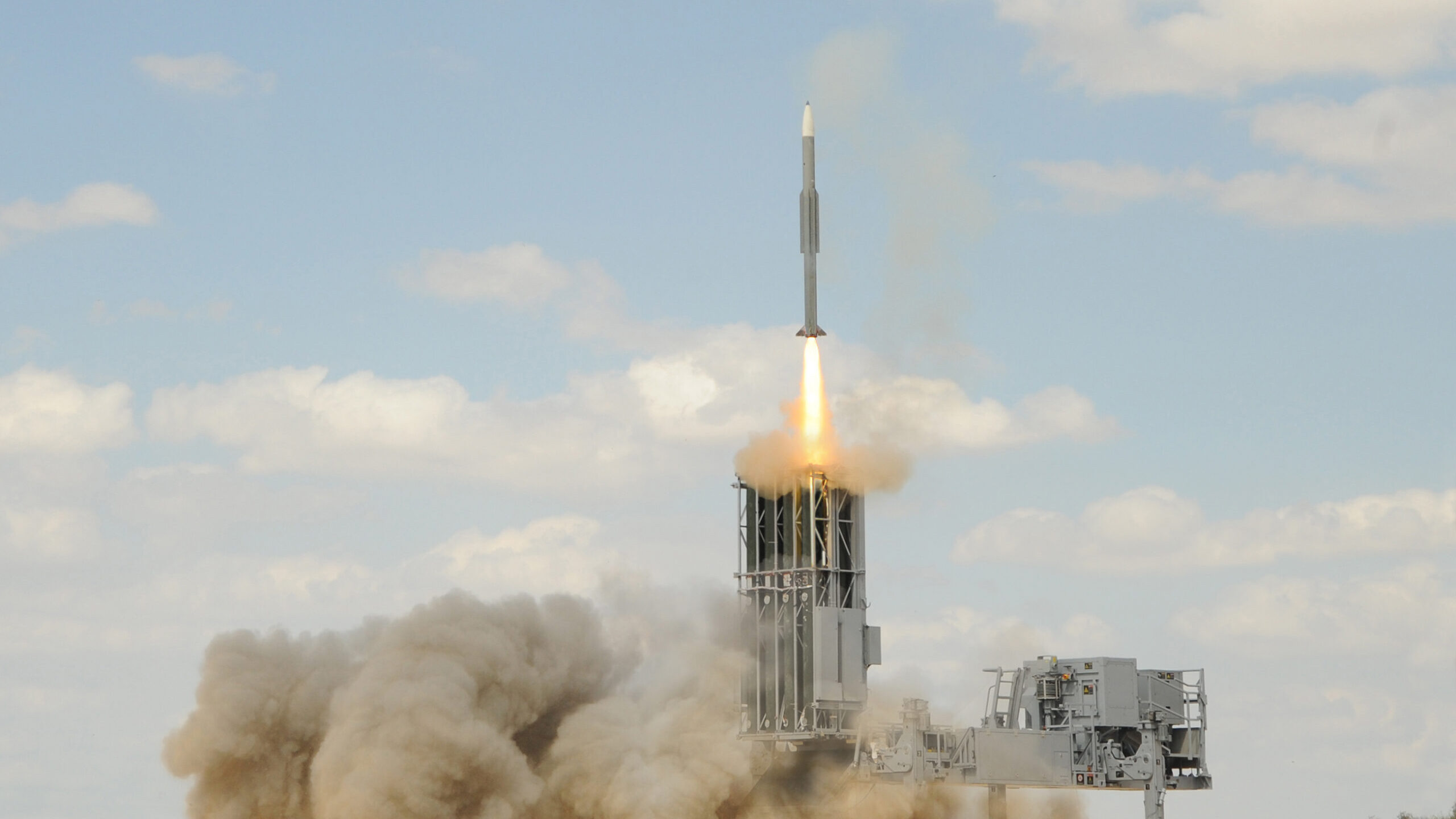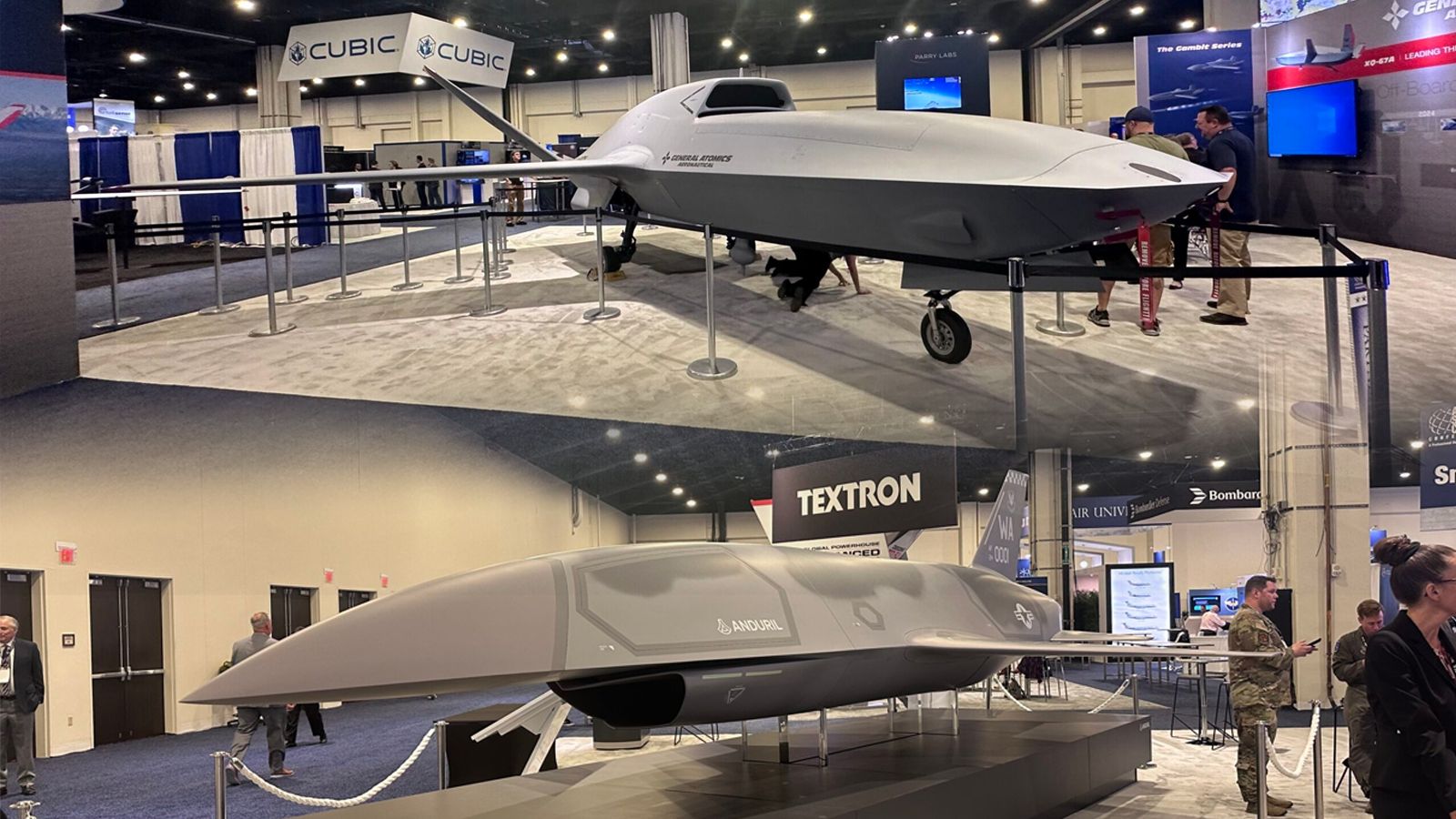Spanish peacekeepers of the United Nations Interim Force in Lebanon (UNIFIL) coordinate their patrol with the Lebanese army, in Marjayoun in south Lebanon on October 8, 2024. (Photo by AFP) (Photo by -/AFP via Getty Images)
BEIRUT — United Nations peacekeepers are sounding the alarm today as its forces and facilities have been struck by Israeli forces, including at least two incidents the UN organization says were conducted “deliberately.”
“This morning, two peacekeepers were injured after an IDF Merkava tank fired its weapon toward an observation tower at UNIFIL’s headquarters in Naqoura, directly hitting it and causing them to fall,” the United Nations Interim Forces in Lebanon (UNIFIL) said in a statement. “The injuries are fortunately, this time, not serious, but they remain in hospital.”
The statement added that on Wednesday “IDF soldiers deliberately fired at and disabled the position’s perimeter-monitoring cameras. They also deliberately fired on UNP 1-32A in Ras Naqoura, where regular Tripartite meetings were held before the conflict began, damaging lighting and a relay station.”
In its statement UNIFIL reminded IDF and all other actors of their “obligations” and that “any deliberate attack on peacekeepers is a grave violation of international humanitarian law and of Security Council resolution 1701” that all sides involved agreed to in 2006. The statement said UNIFIL was following up with Israeli forces on this issue, who do not appear to have responded publicly to UNIFIL’s statement.
The incidents threaten to throw more gasoline on the fire that is the conflict between Israel and the Iran-backed Lebanese armed group Hezbollah, and puts UNIFIL’s already controversial and contentious peacekeeping mission in an even tighter spot. The UNIFIL force is made up of international troops from 49 UN nations, including an Irish contingent that was involved in a tense standoff with Israeli forces over the weekend.
At the end of September Israeli forces called on UNIFIL to withdraw from some positions in southern Lebanon, but UNIFIL declined to move.
Senior Middle East and North Africa analyst at the RANE Network Ryan Bohl told Breaking Defense that there are two likely possibilities to explain IDF’s purported actions.
Despite UNIFIL’s declaration that two of the incidents were deliberate, he said it’s possible “IDF troops on the ground mistook a UNIFIL post for Hezbollah and opened fire. Less likely, but still possible is that the IDF or at least some of its commanders on the ground want to pressure UNIFIL to withdraw in order to increase the IDF’s operational space in the Southern Lebanon.”
Retired Lebanese Brig. Gen. Andre Bou Maachar agreed with Bohl’s second proposal, suggesting that today’s attack might have been conducted by IDF as a leverage to pressure UNIFIL countries to withdraw their troops and imposing a different security system in the region.
He added that it also “indicates that UNIFIL and LAF [Lebanese Armed Forces] can’t be distanced from the conflict, as these incidents will probably take place.”
After today’s attack, Bohl expected UNIFIL to “likely reassess where it can position forces in the south, though without a full mandate to pull out I suspect some will remain in the area. Israel will likely face intense pressure to coordinate military action with UNIFIL to prevent more of these incidents.” Bou Maachar said UNIFIL could respond by withdrawing a few kilometers north.
After about two decades of deployment in the south, the two experts said they believe that the UNIFIL is unlikely to stop military actions between Israel and Hezbollah, despite the peacekeeping moniker.
“UNIFIL is also just as unlikely to stop Israeli military action, though it could slow or shape it as Israel has little interest in the diplomatic blowback that would come from striking UN troops,” Bohl agreed,
Bou Maachar said the recent attacks indicated “that nothing stops Israel from achieving its military and political goal, and it doesn’t respect any international or humanitarian law.” Israel has pushed back on international condemnation regarding civilian deaths caused by its offensive in Gaza and Lebanon, saying it is targeting terrorists who endanger civilians by hiding among them.
Resolution 1701 referenced in the UNIFIL statement refers to the agreement that ended the one-month long Israeli war with Lebanon in July 2006, and greatly increased the number of UNIFIL troops in Lebanon deployed along the border to a maximum of 15,000.
Earlier in August this year, UNIFIL’s mandate was renewed for the first time, while the country saw virtual daily clashes in the south — the kind of violence the peacekeeping mission has struggled to dampen.
As of August, about 10,000 troops are operating there, UNIFIL deputy spokesperson Kandice Ardiel told Breaking Defense previously.
“From 2006 until October 2023, under the framework of resolution 1701, we did not see major conflict in the south. We saw occasional incidents, but those were de-escalated relatively quickly. The situation now is far worse than anything we saw since 2006,” Ardiel said in an August interview.
According to their mandate, UNIFIL have the right of self-defense that they haven’t exercised yet.
“In addition to the use of force beyond self-defence, and without prejudice of the primary responsibility of the Government of Lebanon, UNIFIL may under certain circumstances and conditions resort to the proportionate and gradual use of force to ensure that its area of operations is not utilized for hostile activities,” Chapter 6 of UN charter states.




